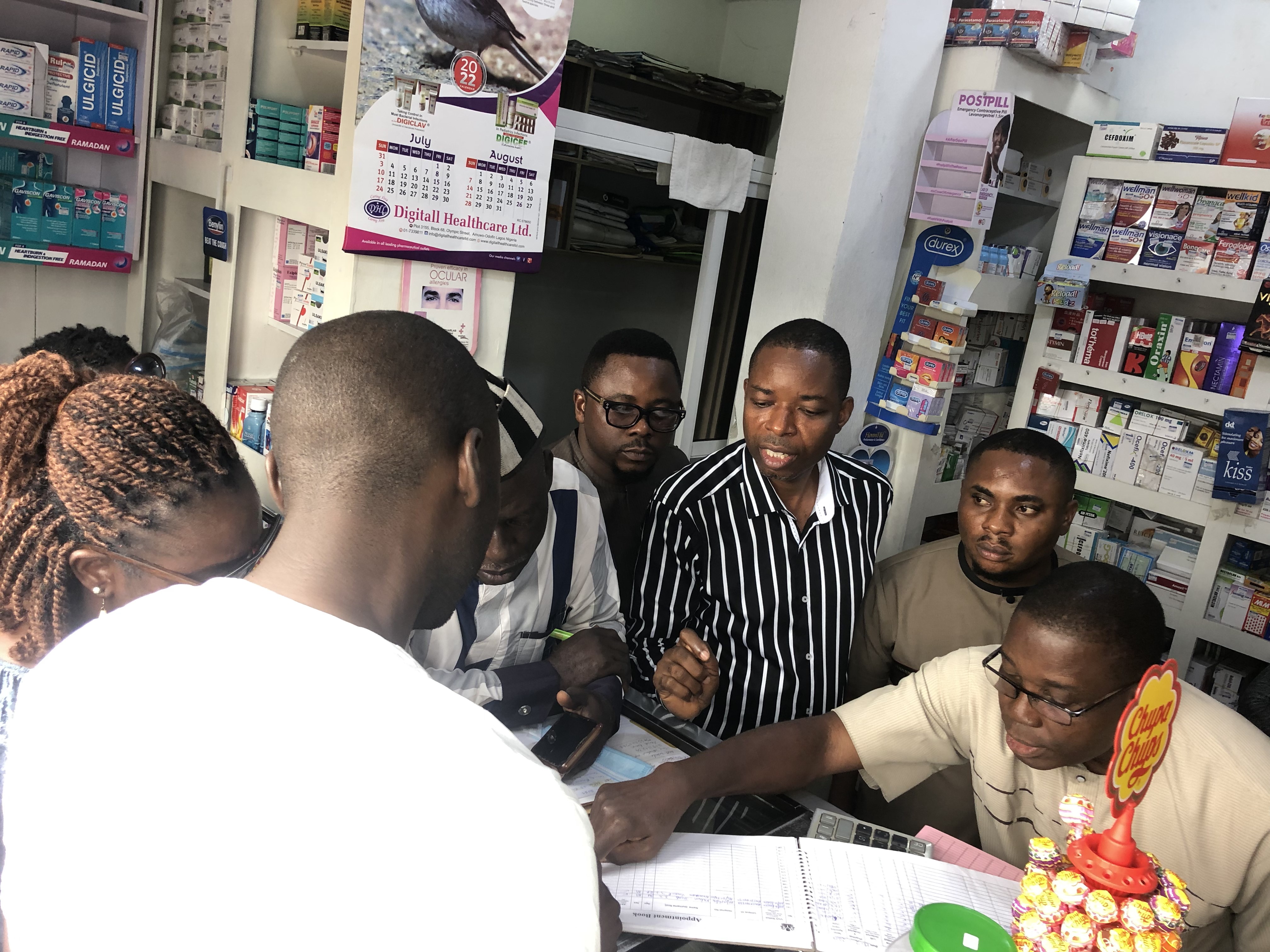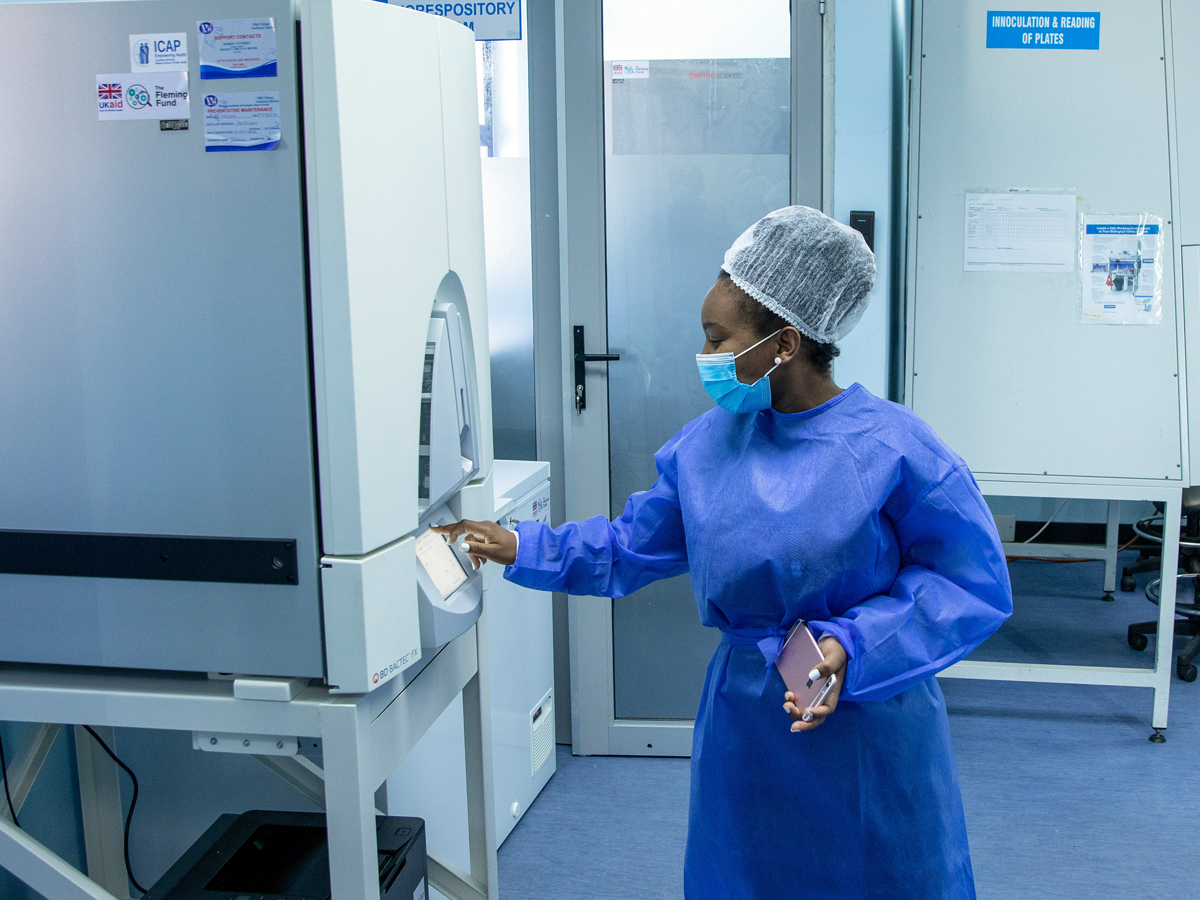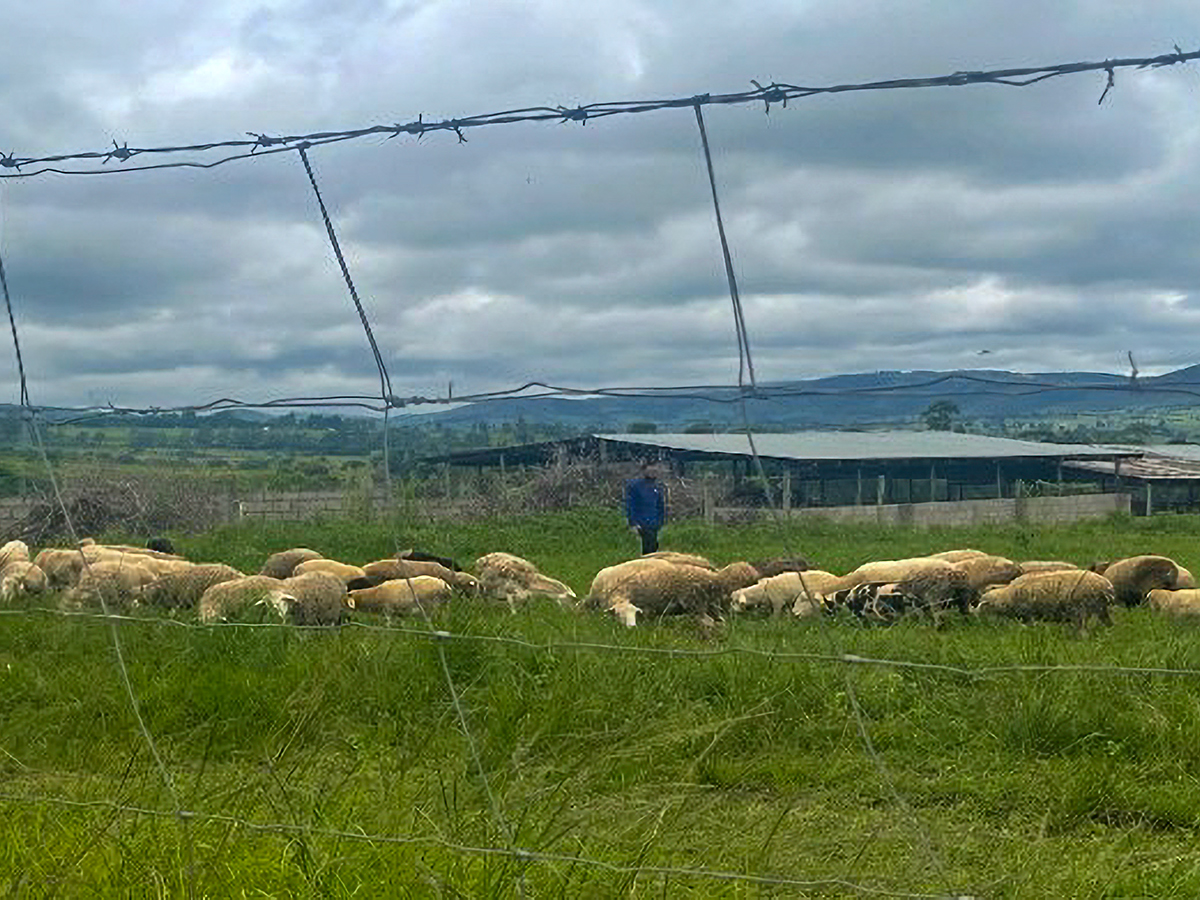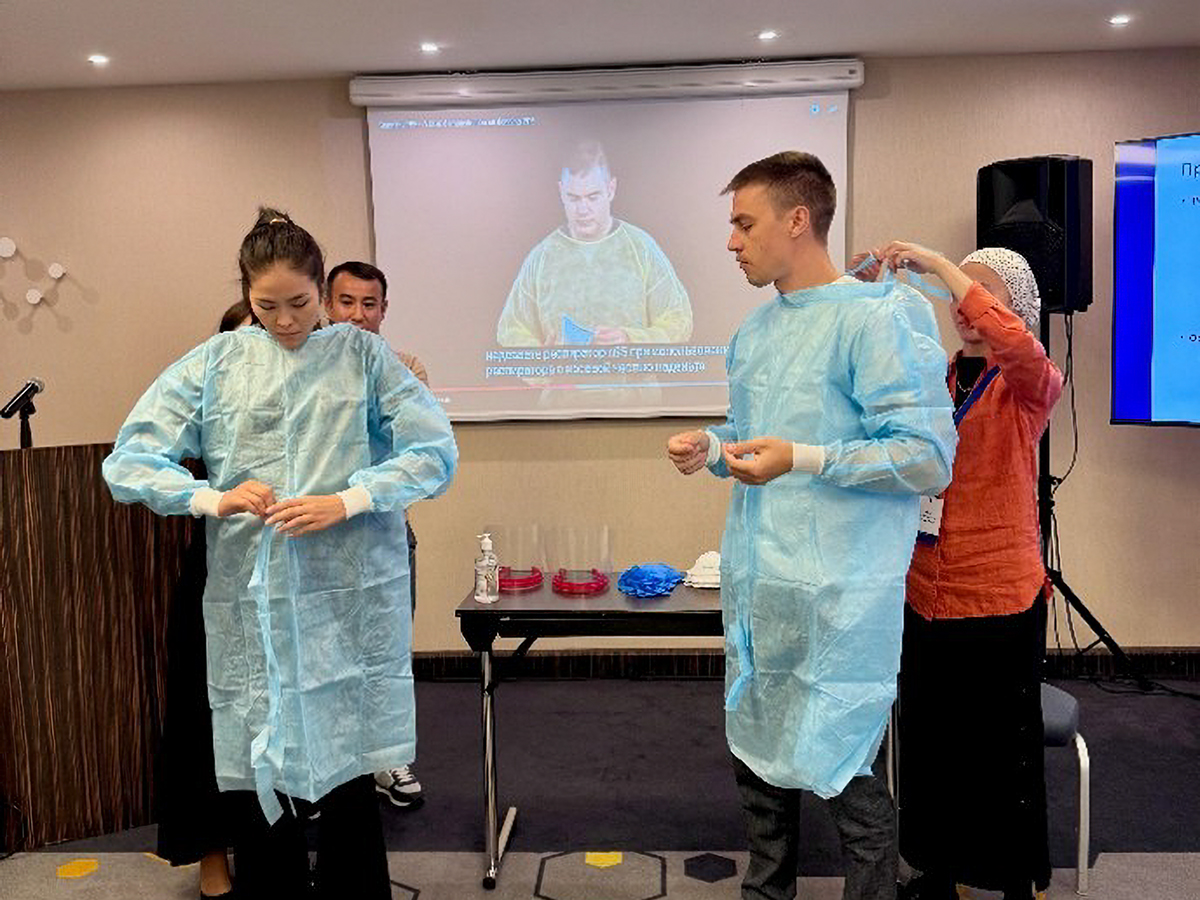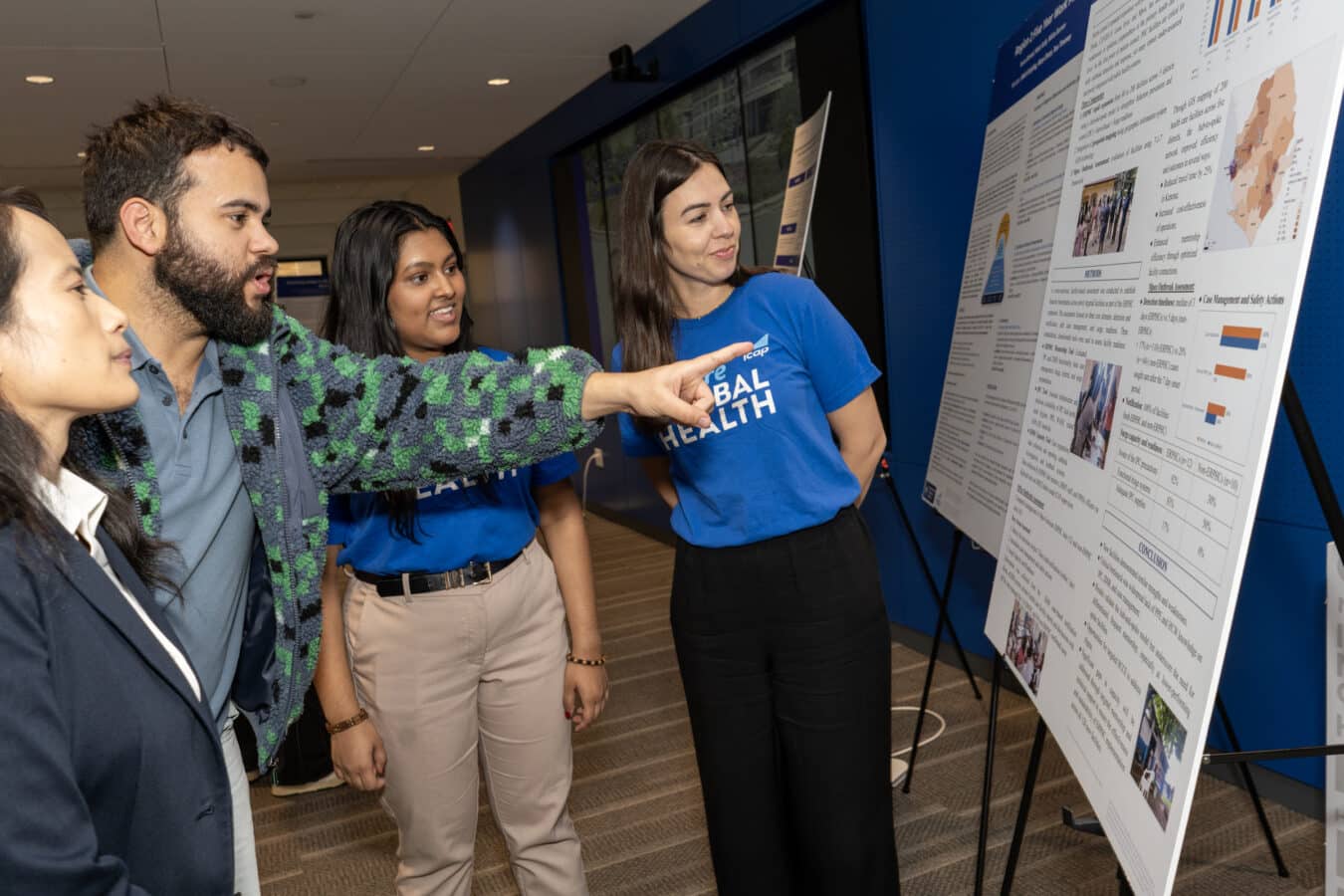In 2016, Nigeria’s Ministry of Health began rolling out a new way to provide treatment to the approximately 1.9 million people living with HIV across its 36 states and Federal Capital Territory. The strategy, called differentiated service delivery (DSD), is a globally recognized approach that tailors HIV service delivery to diverse groups of people, including young children, pregnant or breastfeeding women, adolescents, and key populations including transgender people, people who inject drugs, and sex workers. At the same time, DSD aims to decongest health facilities as an increasing number of people gain access to antiretroviral treatment (ART). DSD was further scaled-up at the time of Covid-19 in order to reach more people living with HIV and minimize potential treatment service disruptions.
Enlisting local pharmacies to dispense antiretroviral (ARV) medication in the community is a perfect example of how DSD works to save people from long and often expensive trips to regional health centers. This method of providing treatment also reduces the burden on public health facilities.
On paper, using community-based pharmacies sounds straightforward, but in practice, many of Nigeria’s states have struggled to make it happen, including Benue State. Located in Nigeria’s North Central region, Benue has over 243,000 people living with HIV, all of whom are active on ARV drugs, and many of whom are resistant to the idea of visiting their neighborhood pharmacy, said Dr. Gabriel Okpotu Anefu, the State AIDS Program Coordinator at Benue’s Ministry of Health and Human Services.
“It’s the stigma of HIV,” Dr. Anefu explained. “It’s still affecting us in the program. Some of our clients will travel several kilometers away to ARV sites where no one knows them because of the stigma, instead of visiting their local pharmacy.”
Last July, a team of health officials and people living with HIV from Benue State—including Dr. Anefu—participated in an ICAP-supported exchange program that invited teams of health officials and practitioners from 12 different Nigerian states to observe and learn DSD best practices from each other. The state teams met with ICAP in advance to select the state they wished to visit and which DSD practices they wished to learn more about, such as monitoring and evaluation, DSD for children and adolescents, or integrating noncommunicable diseases into existing DSD systems.
The Benue team chose to visit River State, on Nigeria’s southern coast, and not surprisingly it placed River State’s successful community-based pharmacies on its priority list of site visits.
“We wanted to know how they were able to cope with issues around stigma and discrimination, and issues around appointment compliance,” said Dr. Anefu. “We also wanted to look at the monitoring and evaluation framework for reporting. How were they able to get their clients to carry out viral load testing and then screening for opportunistic infections?”
In 2022, ICAP launched a partnership with Nigeria’s National AIDS and STI Control Program (NASCP) to create and launch the state-to-state learning initiative, basing it on the country-to-country learning visit model promoted by ICAP’s Coverage, Quality and Impact Network (CQUIN) and tailoring it for the Nigerian context.
“Country-to-country visits have been an important part of the CQUIN network strategy,” said Miriam Rabkin, MD, MPH, CQUIN principal investigator. “Over time, the ICAP CQUIN team developed a structured approach to planning, prioritizing, and implementing visits to maximize opportunities for impact. It is great to see these strategies and tools being adapted for other contexts and projects.”
ICAP developed a detailed state-to-state visit toolkit for the Nigeria exchange program, including standard operating protocols and resources for conducting learning needs assessments, requesting visits, and developing post-visit action plans. The project is financed by the Global Fund, and the World Health Organization (WHO) provides technical oversight.
“These state-to-state learning visits are part of a wider initiative in Nigeria to promote the use of innovative strategies to address HIV prevention, testing, and treatment,” explained Adewale Akinjeji, MD, MBA, ICAP’s country director in Nigeria. “As we have witnessed with Nigeria’s participation in the CQUIN country-to-country visits, they are valuable ways to improve knowledge sharing about effective DSD implementation.”
During their three-day visit to River State, the Benue team—joined by a visiting team of health officials from Plateau State—visited two community pharmacies enrolled in the DSD program, in addition to a general hospital and two health centers.
Dr. Anefu said the team noted the importance that River State health officials placed on helping clients understand from the very beginning the advantages of using community-based pharmacies and the DSD model.
“At the community pharmacies we visited we saw lots of commitment to the program,” he recalled. “They knew their clients and they could account for everybody.”
Participating River State community-based pharmacies also follow a high level of confidentiality, said Dr. Johnbaptist Ezenduka, MD, ICAP’s DSD program advisor in Nigeria, who helped to organize the visits.
“One of the things that came out in the River State visit is that the community pharmacy must first undergo some level of assessment, make sure it meets the criteria,” he explained. “There must be a private audio-visual space for counseling and a storage space for records that locks with a key. Clients also have unique identifications assigned to them.”
A critical part of the state-to-state learning program were the post-visit action plans, and follow-up visits by the ICAP team.
Upon its return from River State, the Benue team immediately began putting some of its newfound knowledge into practice, and within three months it had added 16,000 ARV clients to its DSD community-based pharmacy program. Going forward, Benue State hopes to bump its overall participation rate in community-based DSD from 18 percent to 25 percent, using the lessons learned from their exchange trip to River State.
“We have had visits from the team to see what we were doing, and this helped to keep us on board and focused on our targets, and we didn’t lose track of what we were supposed to be doing,” said Gladys Ezembu, the coordinator for Anambra State’s Network of People Living with HIV and AIDS (NEPWHAN). Ezembu was part of the Anambra State team that visited Akwa Ibom State in August 2022, a trip that focused on scaling up high-quality community-based and facility-based DSD models for people living with HIV.
The state-to-state DSD learning program worked with a number of implementing partners that provide HIV services for the host and visiting states and involved the Reaching Impact, Saturation, and Epidemic Control (RISE) program, which provides essential HIV prevention, care and treatment in key, priority, and general adult populations through strategic technical assistance and direct service delivery in PEPFAR countries. RISE is a multi-year global project funded by the U.S. President’s Emergency Plan for AIDS Relief (PEPFAR) through the United States Agency for International Development (USAID). RISE is led by Jhpiego and implemented in partnership with ICAP in four states in Nigeria (Akwa Ibom, Cross River, Niger, and Taraba).
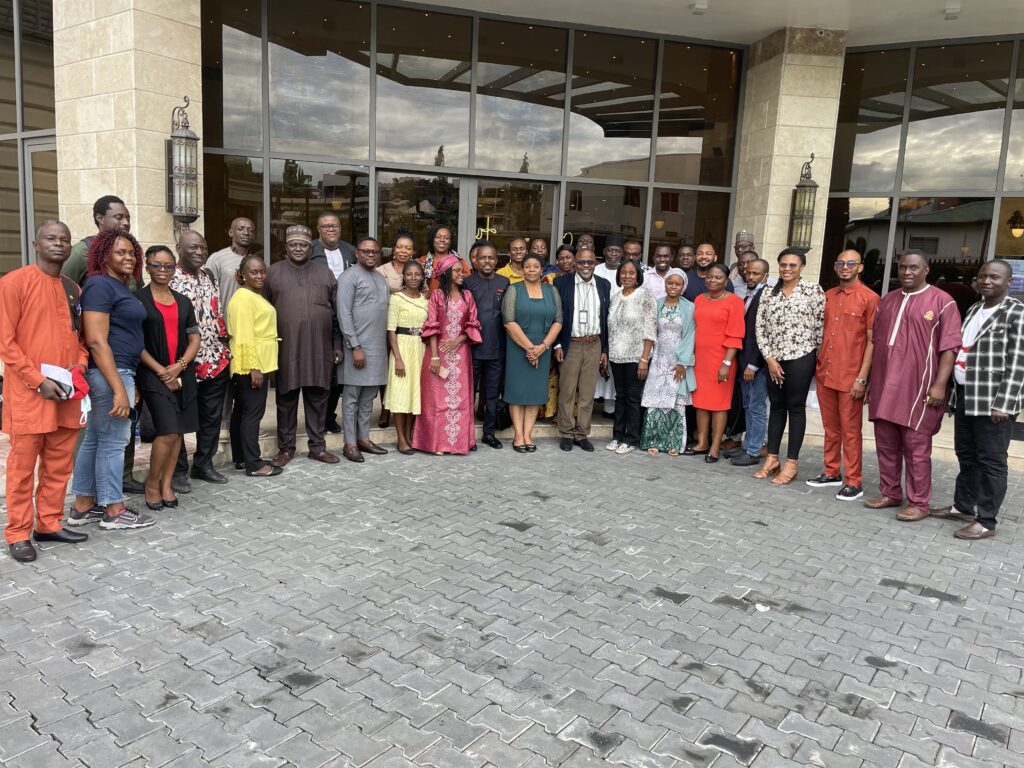
Program participants from both the host and visiting states came together after the visits ended for a feedback session; ICAP and its partners also used the forum as a chance to exchange ideas on how to ensure quality while scaling up DSD activities. A critical part of the state-to-state DSD learning program has been the follow up activities, according to program participants.
About ICAP
A major global health organization that has been improving public health in countries around the world for two decades, ICAP works to transform the health of populations through innovation, science, and global collaboration. Based at Columbia Mailman School of Public Health, ICAP has projects in more than 40 countries, working side-by-side with ministries of health and local governmental, non-governmental, academic, and community partners to confront some of the world’s greatest health challenges. Through evidence-informed programs, meaningful research, tailored technical assistance, effective training and education programs, and rigorous surveillance to measure and evaluate the impact of public health interventions, ICAP aims to realize a global vision of healthy people, empowered communities, and thriving societies. Online at icap.columbia.edu


